Introduction
Can rabbits eat catnip?
Can you imagine the hilarity and chaos that would ensue? Well, get ready, my friends, because that’s exactly what we’re about to explore in this article!
You see, I’ve always been fascinated by the mesmerizing effects of catnip on our feline friends. The way cats roll around, purr, and jump with sheer delight is a sight to behold.
But as I watched my rabbits hopping around their playpen, a burning question ignited in my mind: what if catnip had the same enchanting effect on them?
And so, my quest began! Armed with curiosity and a thirst for knowledge, I delved deep into the wondrous world of catnip and its potential effects on rabbits.
Or would they snub their twitching noses at this herb, leaving us all in a state of confusion? Get ready to have your mind blown as we uncover the truth about catnip and its undiscovered realm for our long-eared companions.
Not only will we explore the mysterious connection between rabbits and catnip, but we’ll also discover alternative herbs that can send rabbits on their own adventures. From exploring tantalizing tunnels to solving puzzles, we’ll uncover an array of ways to keep our furry friends hopping with joy and excitement.
So, my friends, join me on this wild and journey into the world of catnip and rabbits. Prepare to be amazed, entertained, and left in awe as we unravel the secrets that lie within this aromatic herb.
Let’s dive in and unleash the catnip sensation upon our hopping companions!
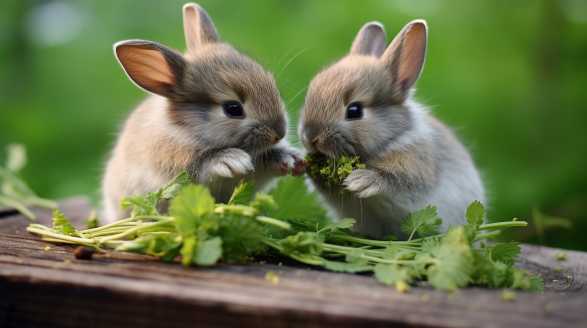
Key Takeaways
- While rabbits may not have the same intense reaction to catnip as cats, some rabbits may show curiosity and interest in it.
- It is important to introduce catnip to rabbits in moderation, as too much can upset their delicate digestive system.
- Rabbits have a different genetic makeup than cats, which makes them unresponsive to the active compound in catnip.
- Alternative herbs such as silvervine and valerian root can provide a similar sensory experience for rabbits.
- Catnip can offer potential health benefits for rabbits, such as digestive aid and stress relief.
- When introducing catnip or any new treat to rabbits, it is essential to start slowly and monitor for allergic reactions or adverse effects.
- Other safe herbs for rabbits to enjoy include parsley, basil, dill, and mint.
Exploring the Catnip Sensation: Can Rabbits Experience the Same Effects as Cats?
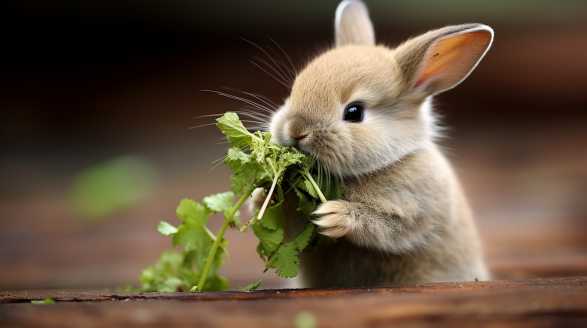
As an avid pet enthusiast, I’ve always been intrigued by the unique quirks and behaviors of our furry companions. One topic that has often piqued my curiosity is the infamous catnip sensation.
Join me on this fascinating exploration as we dive into the world of catnip and discover whether rabbits can be captivated by its effects too.
What is Catnip?
Before we look into the rabbit realm, let’s take a moment to understand what catnip is all about. Catnip, or Nepeta cataria, is a member of the mint family known for its distinct aroma and enticing allure for feline friends.
When exposed to catnip, most cats experience a variety of behaviors, such as rolling, rubbing, purring, and even jumping. It’s like they enter a state of pure bliss and euphoria.
Let’s find out!
The Bunny and the Nip: What the Research Says
When it comes to the effects of catnip on rabbits, research is somewhat limited. Nevertheless, there have been a few studies and anecdotal evidence that shed light on this intriguing topic.
1. Smell Sensitivity
Rabbits have an exceptional sense of smell, much like their feline counterparts. They rely heavily on their olfactory senses to navigate their surroundings and communicate.
2. Behavioral Response
While the extent of a rabbit’s reaction to catnip may vary, some rabbits indeed exhibit curious behavior when exposed to it. They may sniff, nudge, or investigate the herb, similar to how cats actively engage with catnip.
3. Individual Variations
Just as with cats, there are individual variations among rabbits when it comes to their response to catnip. Some rabbits may appear uninterested or completely unfazed by the herb, while others may display more noticeable reactions.
Purrrfectly Safe or Hare-raising?
Now that we’ve established that rabbits can indeed experience some level of behavioral response to catnip, let’s address a common concern – is it safe for them?
Catnip Consumption
While cats often chew on dried catnip leaves or roll around in it, it’s not recommended for rabbits to consume catnip in large quantities. Feeding your rabbit excessive amounts of catnip may lead to an upset stomach or digestive issues.
Alternative Herbs for Rabbits
If you’re looking to provide your rabbit with a similar sensory experience, there are alternative herbs that are safe and enjoyable for them. Dried herbs such as chamomile, peppermint, or lavender can be offered to rabbits in small amounts.
Rabbit Enrichment: Beyond Catnip
While catnip may not have the same intoxicating effect on rabbits as it does on cats, there are plenty of other ways to enrich their lives and stimulate their natural behaviors. Here are some ideas to keep your bunny entertained and engaged:
1. Chew Toys Galore
Rabbits have strong teeth that continuously grow. Providing a variety of safe chew toys, such as willow balls or apple sticks, not only keeps their dental health in check but also offers mental stimulation.
2. Digging Boxes
Rabbits have an innate love for digging. Creating a designated digging box filled with soil, shredded paper, or even dried leaves can satisfy their natural burrowing instincts.
3. Puzzle Feeders
Just like cats, rabbits enjoy a good challenge. Puzzle feeders designed specifically for rabbits can encourage mental stimulation while sparking their natural foraging behavior.
4. Tunnel Time
Rabbits love to explore and hide. Adding tunnels or cardboard boxes with openings to their living space gives them a sense of security and provides a fun exploration opportunity.
The Final Verdict: A Whisker Away from Catnip Paradise
Though rabbits may not experience the full extent of the catnip sensation that leaves our feline friends spellbound, they can still display a level of curiosity and interaction when introduced to this herb. While it’s important to offer catnip in moderation, there are various other forms of enrichment that can captivate and engage rabbits, allowing them to embrace their natural instincts to the fullest.
So, next time you find yourself wondering if rabbits can enjoy the same effects as cats when it comes to catnip, remember that while they may not be catnip connoisseurs, they too can experience a hint of the thrill. Embrace their unique personalities, provide them with safe enrichment, and witness the joy that these delightful creatures bring into our lives.
Discovering the Allure of Catnip for Rabbits: Is it Safe and Healthy?
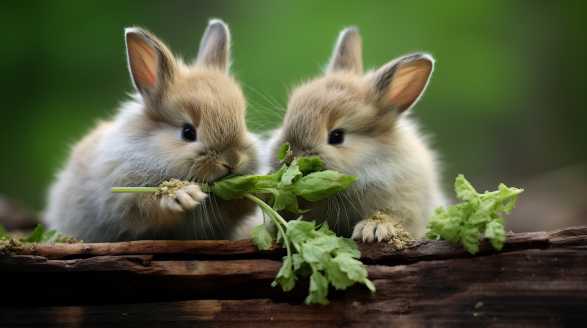
As a devoted rabbit owner, I am constantly on the lookout for new and exciting ways to enrich my furry friend’s life. Recently, I stumbled upon an intriguing topic that piqued my curiosity: catnip for rabbits.
Could catnip have the same mesmerizing effect on rabbits? we will look into the fascinating world of catnip for rabbits, exploring its safety, health benefits, and potential drawbacks.
What is Catnip?
Catnip, scientifically known as Nepeta cataria, is a member of the mint family. It is a versatile herb that has been used for centuries in traditional medicine and as a recreational stimulant for cats.
When cats encounter this compound, it interacts with their olfactory system, creating a euphoric and almost intoxicating response. But what about rabbits?
Can Rabbits Safely Enjoy Catnip?
Curiosity got the better of me, and I began my quest to uncover whether catnip is safe for rabbits. While rabbits are not as famously known for their affinity for catnip, some bunny owners claim that their furry companions do indeed seem captivated by this herb.
Peculiarities of a Rabbit’s Digestive System
Complex Digestion
Rabbits are herbivores and have a unique digestive system perfectly suited for processing a plant-based diet. Their digestive system is finely tuned to process fiber-rich foods, such as grass and hay.
Vulnerability to Digestive Issues
Rabbits possess a highly sensitive digestive system, which makes them prone to digestive problems. Feeding a rabbit the wrong type of food or introducing an unfamiliar substance can lead to a potentially life-threatening condition called gastrointestinal stasis.
The Catnip-Rabbit Connection
Now that we understand the intricacies of a rabbit’s digestive system, we can explore how catnip fits into the equation. While catnip is generally safe for rabbits, it is essential to exercise caution and moderation when introducing it to your furry friend.
- Sensitivity Varies: Similar to humans, different rabbits may react differently to catnip. Some rabbits may be completely uninterested, while others may exhibit signs of enjoyment or even playfulness.
- Use in Small quantities: If you decide to offer your rabbit catnip, ensure it is in small doses. Too much catnip may upset the delicate balance of your rabbit’s digestive system.
- Monitor for Adverse Reactions: After introducing catnip, keep a close eye on your rabbit’s behavior and health. Look for any signs of discomfort, such as decreased appetite, unusual fecal consistency, or lethargy. If you notice any concerning changes, discontinue the use of catnip immediately and consult your veterinarian.
Potential Benefits of Catnip for Rabbits
Despite the need for caution, there are potential benefits to incorporating catnip into your rabbit’s life. Here are some possible advantages:
Mental Stimulation
Catnip can provide rabbits with a new and exciting sensory experience. Chewing or sniffing catnip may stimulate their curiosity, offering mental stimulation and preventing boredom.
Stress Relief
Like humans, rabbits can experience stress in various situations. Introducing catnip as a stress-relieving tool may help calm anxious rabbits and promote a sense of overall well-being.
Bonding and Play
Using catnip as an interactive and bonding tool can enhance your relationship with your rabbit. Gently playing with catnip-infused toys can create a positive association and encourage playfulness.
The world of catnip for rabbits is a captivating one, offering potential benefits and exciting possibilities for our adorable long-eared friends. However, it is crucial to approach catnip with caution and heed the unique needs of our rabbits’ delicate digestive systems.
So, why not give it a try and see if your rabbit discovers the allure of catnip? Remember, always prioritize your rabbit’s health and well-being, and consult your veterinarian if you have any concerns.
Unveiling the Secret: How Catnip Affects Rabbits Differently than Cats
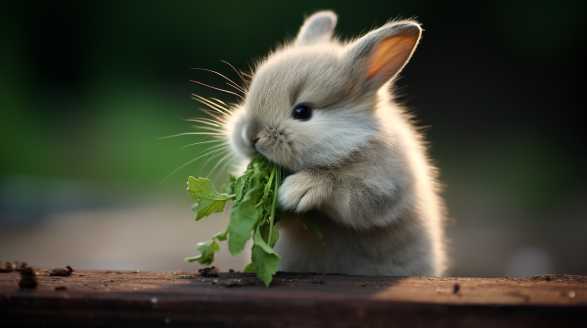
As a passionate animal lover, I have always been curious about the fascinating ways in which different species interact with certain substances. Catnip is one such substance that has a mesmerizing effect on cats.
Let’s dive into the mysterious world of how catnip affects rabbits differently than cats.
The Allure of Catnip to Cats: A Brief Overview
Before we explore the rabbit-catnip connection, let’s quickly understand why cats go crazy for catnip. Catnip belongs to the mint family, and its scientific name is Nepeta cataria.
When cats encounter catnip, whether in its dried form or as an essential oil, they often exhibit a range of behaviors including rolling, rubbing, and intense playfulness.
The Rabbit’s Catnip Conundrum
Discovering the Unexpected: Rabbit Reactions
Contrary to popular belief, cats aren’t the only creatures captivated by the allure of catnip. Rabbits, too, have an interesting relationship with this mysterious herb.
How can this be possible, you may wonder? Let’s break it down.
The Unresponsive Rabbit Phenomenon
When exposed to catnip, rabbits typically display a different set of behaviors compared to our feline friends. Here’s what you might observe:
- Immunity to the Nepetalactone Effect: Unlike cats, rabbits seem unaffected by the active compound in catnip, nepetalactone. This is due to a genetic difference in their receptors, making them unresponsive to its influence.
- Curious Sniffing: Rather than getting wound up or playful, rabbits may simply sniff or investigate the catnip briefly before losing interest. While some rabbits may nibble on the leaves, they don’t appear to experience any noticeable behavioral changes.
- Calm and Mellow: Unlike the hyperactive behavior seen in cats, rabbits do not become stimulated or excited by catnip. They maintain their composure and remain in a state of tranquility.
What sets rabbits apart from other animals is their unique metabolism. Unlike cats, they lack the liver enzyme necessary to process nepetalactone effectively.
The Catnip Alternative for Rabbits: Silvervine and Valerian Root
While catnip may not have the same effect on rabbits as it does on cats, that doesn’t mean they are without their own tantalizing botanical experiences. Two alternatives that can induce reactions in rabbits are silvervine and valerian root.
Silvervine: The Rabbit’s Heaven-Scent
Originating from East Asia, silvervine (Actinidia polygama) is a climbing plant often dubbed as “matatabi” in Japan. Its allure to rabbits stems from the presence of actinidine, a substance that rabbits find intriguing.
Valerian Root: Nature’s Tranquilizer for Rabbits
Valerian root (Valeriana officinalis) has long been recognized for its calming properties in humans and animals alike. When rabbits encounter valerian root, they may exhibit a sense of relaxation and calmness.
In our quest to understand the animal kingdom, we stumble upon countless surprises and mysteries. The way catnip affects rabbits differently than cats serves as a reminder of the uniqueness of each species.
Instead, consider exploring the enchanting world of silvervine and valerian root, and let your bunny hop into a realm of divergent botanical adventures!
Catnip as a Treat for Cat Rabbits: Should You Introduce it to their Diet?
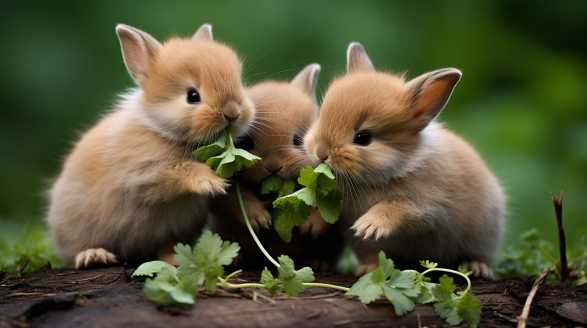
As a proud owner of both cats and rabbits, I have always been fascinated by their individual tastes and preferences. So, when I first heard about the possibility of feeding catnip to rabbits, I was immediately intrigued.
Is it safe for them to consume? Will they enjoy it as much as their feline counterparts?
What is Catnip?
Before we look into the rabbit/catnip relationship, let’s first understand what catnip actually is. Catnip, also known by its scientific name Nepeta cataria, is a type of herb from the mint family.
When cats are exposed to catnip, they often exhibit behaviors such as rolling, rubbing, and intense excitement. It has a stimulating effect on many cats and can be a valuable tool for enrichment and playtime.
Can Rabbits Enjoy Catnip Too?
It might come as a surprise, but rabbits can indeed have a fondness for catnip. While not all rabbits react to catnip like cats do, it can still provide them with some entertainment and enrichment.
It’s important to note that not all rabbits will be interested in catnip, and that’s perfectly okay. Individual preferences vary among rabbits, just as they do among cats.
Health Benefits of Catnip for Rabbits
Apart from providing a source of entertainment, catnip can offer potential health benefits for rabbits. Here are a few worth mentioning:
- Digestive Aid: Catnip has been known to help soothe digestive issues in rabbits. It can aid in relieving gas and bloating, promoting a healthy gut.
- Stress Relief: Rabbits are sensitive animals, and stressful situations can impact their overall well-being. Catnip can help alleviate anxiety and promote relaxation in rabbits, just as it does in cats.
- Appetite Stimulant: If your rabbit is experiencing a loss of appetite, introducing catnip can work as a natural appetite stimulant. Its scent and flavor can entice rabbits to eat and regain their interest in food.
How to Safely Introduce Catnip to Rabbits
Before introducing any new treat to your rabbit’s diet, it’s crucial to follow a few guidelines to ensure their safety:
- Start Slowly: Begin by offering a small amount of catnip to your rabbit to observe their reaction. Some rabbits may not show interest, while others may love it right away. Every rabbit is different, so it’s essential to pay attention to their individual response.
- Monitor for Allergic Reactions: Like any new food, there is always a risk of allergies. Keep a close eye on your rabbit after introducing catnip and watch for any signs of adverse reactions such as sneezing, excessive scratching, or digestive disturbance. If you notice any unusual symptoms, discontinue the use of catnip immediately and consult your veterinarian.
- Moderation is Key: Catnip should always be given as an occasional treat, not as a staple in your rabbit’s diet. Too much catnip can cause digestive upset or overstimulation. A small pinch of dried catnip once or twice a week is generally sufficient for most rabbits.
Other Herbs for Rabbits to Enjoy
In addition to catnip, there are several other herbs that rabbits can safely enjoy. Consider adding some of these herbs to their diet for a well-rounded and flavorful experience:
- Parsley: Packed with vitamins and minerals, parsley is a favorite among rabbits. It’s an excellent source of vitamin C and can help support their immune system.
- Basil: Not only does basil add a delightful aroma to your rabbit’s diet, but it also provides essential nutrients such as vitamin K and beta-carotene.
- Dill: Offering a slightly tangy flavor, dill is another herb that rabbits enjoy. It contains calcium, iron, and antioxidants that contribute to their overall health.
- Mint: Like catnip, mint belongs to the mint family and has a refreshing taste that rabbits find appealing. It can aid in digestion and provide a cooling sensation.
Catnip can indeed be introduced as a treat for cat rabbits, as long as it is done safely and in moderation. While not all rabbits will show an interest in catnip, those that do may find it engaging and enjoyable.
Additionally, don’t forget to explore other rabbit-friendly herbs to add variety to their diet. With the right approach, you can provide your furry friend with an enriched and flavorful experience while maintaining their health and well-being.
Conclusion
Wow, what a adventure we’ve had exploring the world of catnip and rabbits! From uncovering the mysterious rabbit-catnip connection to delving into the intriguing differences between cats and rabbits, we’ve journeyed deep into the realm of herb-induced excitement.
Though we discovered that rabbits may not experience the intense euphoria and playfulness that cats do with catnip, they can still show curiosity and interest in this herb. It’s all about embracing their unique personalities and preferences.
But let’s not forget the importance of safety and caution when it comes to introducing catnip or any new treat to our long-eared companions. Slow and steady wins the race, my friends!
And hey, catnip might not be the only herb in town for our furry friends. We discovered a whole world of delightful and safe herbs that can bring joy and flavor to their lives.
So, as we wrap up our adventure, let’s remember the magic of catnip and its potential to bring a touch of intrigue and sensory stimulation to our rabbit companions. While their reactions may be different from those of cats, the curiosity and joy they show are just as precious.
It’s been an honor to embark on this wild journey with you, fellow pet enthusiasts. May your rabbits be forever joyous and your days filled with the pitter-patter of bunny feet.
Frequently Asked Questions
Can rabbits eat catnip?
Yes, rabbits can eat catnip in moderation. It is safe for them to consume, but it’s important not to overdo it.
Is catnip harmful to cats?
No, catnip is not harmful to cats. In fact, it is perfectly safe for them to consume.
Can catnip be dangerous for rabbits?
While catnip itself is not toxic to rabbits, consuming large amounts may cause digestive upset or create a laxative effect. It is best to offer catnip to rabbits sparingly and monitor their reaction to ensure they tolerate it well.
Why do cats love catnip?
Cats are attracted to catnip because it contains an aromatic compound called nepetalactone. This compound stimulates certain receptors in the cat’s brain, resulting in a variety of behavioral responses.
How should I give catnip to my cat?
You can give catnip to your cat in a variety of forms. Most commonly, catnip is dried and can be sprinkled on toys, scratching posts, or incorporated into a homemade catnip pouch.
Can catnip be used as a training tool?
Yes, catnip can be a useful tool for training cats. Its enticing scent can attract cats to desired areas, such as scratching posts or beds.
Is catnip addictive for cats?
No, catnip is not addictive for cats. While they may feel a temporary euphoria and exhibit playful behavior when exposed to catnip, the effects are short-lived and wear off within 10-15 minutes. Afterward, cats become temporarily immune to its effects for a certain period of time.
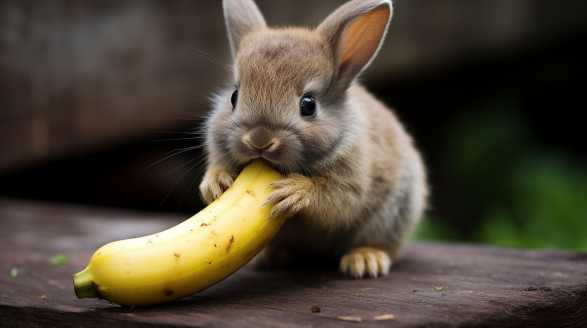
Can Rabbits Eat Bananas
Introduction Hey there, fellow bunny lovers! Are you ready for a journey into the world of rabbits and bananas? Can Rabbits eat bananas? Let’s find out. I’m thrilled to share with you all the juicy details about rabbits and their love affair with bananas. When it comes to our furry little friends, we all want […]
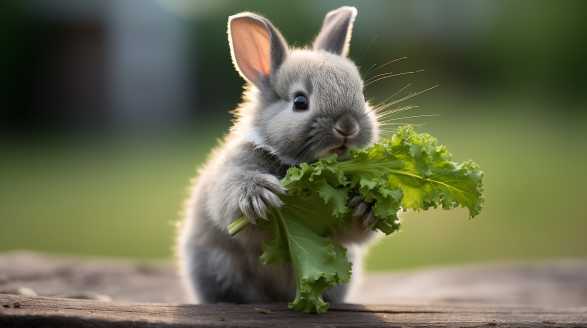
Can Rabbits Eat Kale
Introduction Can rabbits eat kale? Let’s find out. Now, picture this: fluffy bunnies bouncing around, their fur glistening in the sunlight, and their skin looking oh-so-smooth and radiant. Have you ever wondered what their secret is? Believe it or not, kale is not only a superfood for us humans, but it also packs a punch […]
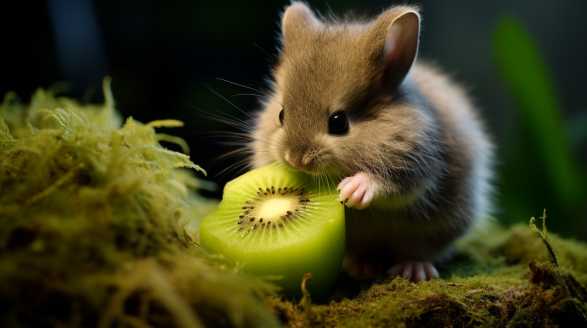
Can Rabbits Eat Kiwi
Introduction Can Rabbits eat kiwi? Let’s find out We’ll dive into the topic headfirst, exploring the enigmatic bond between kiwis and rabbits. From uncovering the unexpected similarities in their dietary preferences to how kiwi can either become a rabbit’s best friend or worst nightmare. Ever wondered how much kiwi rabbits can gobble up without getting […]
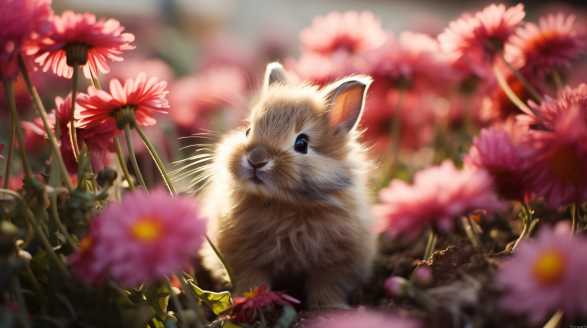
Do Rabbits Eat Dahlias
Introduction Do Rabbits Eat Dahlias? It turns out that dahlias may not be such a friendly feast for our adorable hopping companions. Now, picture this: you’ve painstakingly nurtured your dahlia garden, carefully selecting the most stunning varieties, and imagining a wonderland of color and beauty. But wait! A heart-wrenching sight, isn’t it? But fear not, […]
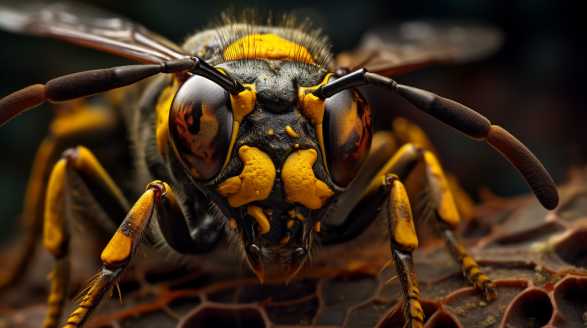
Do Rabbits Eat Insects
Introduction Do rabbits eat insects? Let’s find out. I found myself captivated by the intricate relationship between these fearless bunnies and their six-legged foes. The rabbit, armed with lightning-fast speed, evasive maneuvers, and keen senses, is a formidable herbivore that knows how to outmaneuver its tiny adversaries. We will also unearth the mysteries of the […]
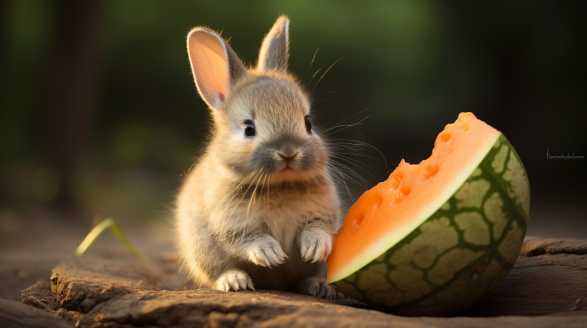
Can Rabbits Eat Cantaloupe
Introduction Can rabbits eat cantaloupe? Let’s find out. Picture this: you’re enjoying a slice of sweet, refreshing cantaloupe on a hot summer day. It’s the epitome of summer delight, and suddenly, you look down to see two curious, twitching noses staring up at you. But wait, is it safe? Can rabbits really enjoy cantaloupe too? […]
